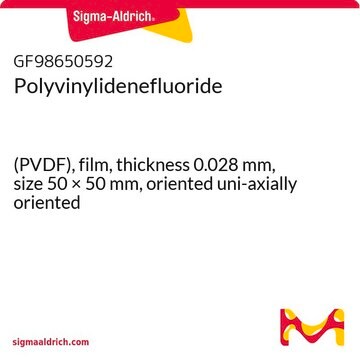MABC1040
Anti-MTH1 Antibody, clone 11A3.2
clone 11A3.2, from mouse
Sinónimos:
7,8-dihydro-8-oxoguanine triphosphatase, 2-hydroxy-dATP diphosphatase, 8-oxo-dGTPase, Nucleoside diphosphate-linked moiety X motif 1, Nudix motif 1
Seleccione un Tamaño
Seleccione un Tamaño
About This Item
Productos recomendados
origen biológico
mouse
Nivel de calidad
forma del anticuerpo
purified immunoglobulin
tipo de anticuerpo
primary antibodies
clon
11A3.2, monoclonal
reactividad de especies
human
técnicas
western blot: suitable
isotipo
IgG1κ
Nº de acceso NCBI
Nº de acceso UniProt
Condiciones de envío
wet ice
modificación del objetivo postraduccional
unmodified
Información sobre el gen
human ... NUDT1(4521)
Descripción general
Especificidad
Inmunógeno
Aplicación
Apoptosis & Cancer
Apoptosis - Additional
Calidad
Western Blotting Analysis: 1.0 µg/mL of this antibody detected MTH1 in 10 µg of Jurkat cell lysate.
Descripción de destino
Forma física
Almacenamiento y estabilidad
Otras notas
Cláusula de descargo de responsabilidad
¿No encuentra el producto adecuado?
Pruebe nuestro Herramienta de selección de productos.
Código de clase de almacenamiento
12 - Non Combustible Liquids
Clase de riesgo para el agua (WGK)
WGK 1
Punto de inflamabilidad (°F)
Not applicable
Punto de inflamabilidad (°C)
Not applicable
Certificados de análisis (COA)
Busque Certificados de análisis (COA) introduciendo el número de lote del producto. Los números de lote se encuentran en la etiqueta del producto después de las palabras «Lot» o «Batch»
¿Ya tiene este producto?
Encuentre la documentación para los productos que ha comprado recientemente en la Biblioteca de documentos.
Active Filters
Nuestro equipo de científicos tiene experiencia en todas las áreas de investigación: Ciencias de la vida, Ciencia de los materiales, Síntesis química, Cromatografía, Analítica y muchas otras.
Póngase en contacto con el Servicio técnico








